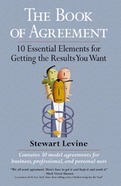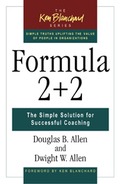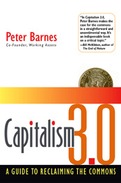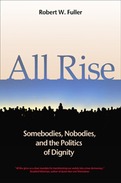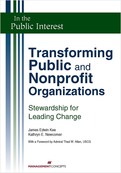Search Results: "Unequal protection"
Results 7-12 of 53
Dear Black Girl
2021
“Dear Black Girl is the empowering, affirming love letter our girls need in order to thrive in a world that does not always protect, nurture, or celebrate us. This collection of Black women's voices… is a must-read, not only for Black girls, but for everyone who cares about Black girls, and for Black women whose inner-Black girl could use some healing.” –Tarana Burke, Founder of the ‘Me Too' Movement
"Dear Dope Black Girl, You don't know me, but I know you. I know you because I am you! We are magic, light, and stars in the universe.” So begins a letter that Tamara Winfrey Harris received as part of her Letters to Black Girls project, where she asked black women to write honest, open, and inspiring letters of support to young black girls aged thirteen to twenty-one. Her call went viral, resulting in a hundred personal letters from black women around the globe that cover topics such as identity, self-love, parents, violence, grief, mental health, sex, and sexuality.
In Dear Black Girl, Winfrey Harris organizes a selection of these letters, providing “a balm for the wounds of anti-black-girlness” and modeling how black women can nurture future generations. Each chapter ends with a prompt encouraging girls to write a letter to themselves, teaching the art of self-love and self-nurturing. Winfrey Harris's The Sisters Are Alright explores how black women must often fight and stumble their way into alrightness after adulthood. Dear Black Girl continues this work by delivering pro-black, feminist, LGBTQ+ positive, and body positive messages for black women-to-be—and for the girl who still lives inside every black woman who still needs reminding sometimes that she is alright.
"Dear Dope Black Girl, You don't know me, but I know you. I know you because I am you! We are magic, light, and stars in the universe.” So begins a letter that Tamara Winfrey Harris received as part of her Letters to Black Girls project, where she asked black women to write honest, open, and inspiring letters of support to young black girls aged thirteen to twenty-one. Her call went viral, resulting in a hundred personal letters from black women around the globe that cover topics such as identity, self-love, parents, violence, grief, mental health, sex, and sexuality.
In Dear Black Girl, Winfrey Harris organizes a selection of these letters, providing “a balm for the wounds of anti-black-girlness” and modeling how black women can nurture future generations. Each chapter ends with a prompt encouraging girls to write a letter to themselves, teaching the art of self-love and self-nurturing. Winfrey Harris's The Sisters Are Alright explores how black women must often fight and stumble their way into alrightness after adulthood. Dear Black Girl continues this work by delivering pro-black, feminist, LGBTQ+ positive, and body positive messages for black women-to-be—and for the girl who still lives inside every black woman who still needs reminding sometimes that she is alright.
Crafting agreements with others is a fundamental life skill. Unfortunately, we were never taught how to do it. The agreements most people make are incomplete and ineffective-they usually focus on protecting against what might go wrong instead of figuring out how to make things go right. The Book of Agreement offers a new approach. Stewart Levine demonstrates the superiority of "agreements for results" versus "agreements for protection" and outlines ten principles for creating agreements that explicitly articulate desired outcomes and provide a roadmap to achieving them. He includes over thirty specific templates that can be used to create this new type of agreement for results in a variety of organizational and personal contexts.Crafting agreements with others is a fundamental life skill. Unfortunately, we were never taught how to do it. The agreements most people make are incomplete and ineffective-they usually focus on protecting against what might go wrong instead of figuring out how to make things go right. The Book of Agreement offers a new approach. Stewart Levine demonstrates the superiority of "agreements for results" versus "agreements for protection" and outlines ten principles for creating agreements that explicitly articulate desired outcomes and provide a roadmap to achieving them. He includes over thirty specific templates that can be used to create this new type of agreement for results in a variety of organizational and personal contexts.
- Teaches a fundamental life skill-crafting mutually satisfying agreements
- Describes ten essential elements for designing agreements focused on achieving results rather than providing remedies for what might go wrong-a more effective alternative to the traditional legal/adversarial approach
- Includes thirty model agreements for business, personal, and professional uses
Formula 2 + 2
2004
In today’s fast-paced business environment, frequent feedback and “course correction” is absolutely vital. But about the only time most managers offer employees feedback is during scheduled (and generally infrequent) performance appraisals, which tend to be stiff, formal, and—whether intentionally or not—adversarial, and therefore ineffective. Formula 2+2 offers a simple yet powerful approach to revolutionizing feedback conversations. It details the five secrets of effective feedback:
• Timeliness
• Balance
• Focus
• Specificity
• Follow-up
Formula 2+2 shows how to foster a culture of continuous feedback which increases the effectiveness of the manager, protects the spirit and dignity of employees, and provides a systematic approach to reinforcing and improving employee performance.The latest volume in Berrett-Koehler's Ken Blanchard Series
Includes a foreword by Ken Blanchard, an introduction by Bill Cosby, and a mid-book message from lunar astronaut Buzz Aldrin
Offers managers a simple system that will increase their effectiveness and improve employee morale and productivity
Written in the accessible and compelling Blanchard storytelling style
In today's fast-paced and rapidly changing business environment, frequent feedback and "course correction" is absolutely vital. But about the only time most managers offer employees feedback is during scheduled (and generally infrequent) performance appraisals, which tend to be stiff, formal, and-whether intentionally or not-adversarial, and therefore ineffective.
Formula 2+2 offers a simple yet powerful approach to revolutionizing feedback conversations. It details the five secrets of effective feedback: making it timely, balanced between compliments and critiques, focused on high priority areas, supported with specific examples, and reinforced with appropriate follow-up.
The book tracks the transformation of Pauline, a strong but traditional leader whose attempts at coaching and feedback are failing miserably. An old friend introduces her to Formula 2+2 and walks her through the five secrets of effectively implementing 2+2 feedback. Pauline discovers that providing feedback is not a necessary evil, but can become a welcome part of the manager's job.
Formula 2+2 shows how to foster a culture of continuous feedback which increases the effectiveness of the manager, protects the spirit and dignity of employees, and provides a systematic approach to reinforcing and improving employee performance.
- The latest volume in Berrett-Koehler's Ken Blanchard Series
- Includes a foreword by Ken Blanchard, an introduction by Bill Cosby, and a mid-book message from lunar astronaut Buzz Aldrin
- Offers managers a simple system that will increase their effectiveness and improve employee morale and productivity
- Written in the accessible and compelling Blanchard storytelling style
Capitalism 3.0
2006
The commons — those creations of nature and society we inherit together and must preserve for our children — is under siege. Our current version of capitalism — the corporate, globalized version 2.0 — is rapidly squandering this heritage. Now, Peter Barnes offers a solution: protect the commons by giving it property rights and strong institutional managers.
Barnes shows how capitalism — like a computer — is run by an operating system. Our current operating system gives too much power to profit-maximizing corporations that devour the commons and distribute most of their profits to a sliver of the population. And government — which in theory should defend the commons — is all too often a tool of those very corporations.
Barnes proposes a revised operating system — Capitalism 3.0 — that protects the commons while preserving the many strengths of capitalism as we know it. His major innovation is the commons trust, a market based legal entity with the power to limit the use of scare commons, charge rent, and pay dividends — in both cash and services — to everyone.
In Barnes' vision, an array of commons trusts would institutionalize our obligations to future generations, fellow citizens, and nature. Once established, they'd use markets and property rights to create a better world for us all.
Capitalism 3.0 offers a practical alternative to our current flawed economic system. It points the way to a future in which we can retain capitalism's virtues while mitigating its vices.
- Watch a video of Peter Barnes on ForaTV
- By a cofounder and former president of Working Assets
- Offers a startlingly original way to adapt capitalism to the 21st century
- Shows that protecting "the commons"--humanity's shared natural and cultural heritage--is the key to revitalizing capitalism and safeguarding the planet
All Rise
2006
In his groundbreaking book Somebodies and Nobodies, Robert Fuller identified a form of domination that everyone has experienced but few dare to protest: rankism, abuse of the power inherent in rank to exploit and humiliate someone of lower rank. It plays a role in just about every form of social oppressionÑracism, sexism, homophobia, and religious intolerance all have a significant element of rankism in them.
Most everyone has felt the sting of rankism--at the hands of a dictatorial boss, a condescending teacher, an arrogant doctor, or an imperious bureaucrat. But, equally, most everyone has inflicted it on someone of lower rank. That we are, all of us, both victims and perpetrators of rankism mandates a novel, multifaceted strategy for confronting it.
Fuller isn't proposing that we do away with rank--without it organizations become dysfunctional. He's not advocating an egalitarian society where all are equal in rank but rather a "dignitarian" one where all are equal in dignity: a society in which rankholders are held accountable, rankism is shunned, and dignity is broadly protected.In his groundbreaking book Somebodies and Nobodies, Robert Fuller identified a form of domination that everyone has experienced but few dare to protest: rankism, abuse of the power inherent in rank to exploit and humiliate someone of lower rank. It plays a role in just about every form of social oppressionÑracism, sexism, homophobia, and religious intolerance all have a significant element of rankism in them.
Most everyone has felt the sting of rankism--at the hands of a dictatorial boss, a condescending teacher, an arrogant doctor, or an imperious bureaucrat. But, equally, most everyone has inflicted it on someone of lower rank. That we are, all of us, both victims and perpetrators of rankism mandates a novel, multifaceted strategy for confronting it.
Fuller isn't proposing that we do away with rank--without it organizations become dysfunctional. He's not advocating an egalitarian society where all are equal in rank but rather a "dignitarian" one where all are equal in dignity: a society in which rankholders are held accountable, rankism is shunned, and dignity is broadly protected.
- By the author of the bestselling Somebodies and Nobodies: Overcoming the Abuse of Rank
- Argues that rankism--abuse of the power that comes with superior rank--does serious damage to our private relationships and public institutions
- Details how to design social institutions that overcome rankism and protect human dignity
- Learn more at www.BreakingRanks.net
In the public and nonprofit arenas, leaders face the unique challenge of protecting the public interest while implementing organizational change initiatives. To succeed, these leaders must build organizations that are “change-centric,” carefully weigh and prepare for the risks of change, and develop a change-oriented leadership style that authors Kee and Newcomer call transformational stewardship.
A comprehensive approach to leading change, Transforming Public and Nonprofit Organizations: Stewardship for Leading Change provides public and nonprofit leaders and students of leadership, management, and organizational change with theoretical knowledge and practical tools for accomplishing change goals while protecting the broader public interest. This insightful and useful guide offers:
An introduction to the change-oriented leadership concept, transformational stewardship
An easy-to-follow model for initiating change in the public interest
Case studies, practical tips, and resources for additional learning
An organizational assessment instrument to gauge readiness for major change
A 360-degree assessment instrument to identify individual leadership strengths and areas for improvement
A comprehensive approach to leading change, Transforming Public and Nonprofit Organizations: Stewardship for Leading Change provides public and nonprofit leaders and students of leadership, management, and organizational change with theoretical knowledge and practical tools for accomplishing change goals while protecting the broader public interest. This insightful and useful guide offers:
An introduction to the change-oriented leadership concept, transformational stewardship
An easy-to-follow model for initiating change in the public interest
Case studies, practical tips, and resources for additional learning
An organizational assessment instrument to gauge readiness for major change
A 360-degree assessment instrument to identify individual leadership strengths and areas for improvement



